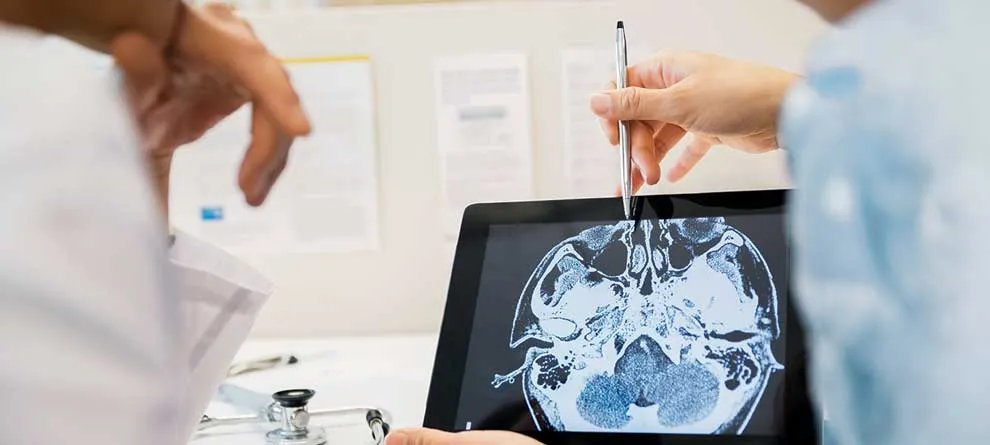
Things to Ask a Neurologist
Checking in regularly with a neurologist can help you control Parkinson’s symptoms. We talked to an advanced practice nurse specializing in Parkinson’s, Mariann Di Minno, R.N., M.A., C.N.S., at the Department of Neurology at the University of California, San Francisco, about neurologists, movement disorder specialists (who are specialized neurologists; see page 2), and more.
Q. Why see a movement disorder specialist instead of a general neurologist?
A. Movement disorder specialists are neurologists who focus on PD and related conditions and, thus, are experts on symptoms, medications and other treatment options; they can connect patients to other specialists, such as speech or physical therapists, when needed. If you must travel to see one, they will do an assessment and may suggest medication tweaks and such to your local general neurologist.
Q. Why might my medications need tweaking?
A. PD medications often work effectively for a period, but as time goes on and the disease progresses the same medication may not treat symptoms as well. That’s when it may be time to add medications that can prolong and improve symptom control. We now have many more medication options than in the past, and there are other treatments, such as deep brain stimulation, that can also be considered.
Q. How often should I have an assessment to review my treatment plan?
A. It depends on the individual. If symptoms are stable, then every three months might make sense if the patient and the movement disorder specialist are in the same locale. If starting a new medication, the patient should see the specialist earlier. If a patient must travel, then consider an annual check-in with a follow-up from a local neurologist. A review is also indicated when a patient or caregiver feels symptoms have changed significantly; the patient is having more trouble with walking, balance or speech.
Q. How should I prepare for an assessment? What should I bring to an appointment?
A. Be ready to provide all current information about your medications: the dosages and when and how you’re taking them—with or without food, for example. You’ll also be asked whether you’re having any specific problems and what your best and worst times of day are. If you’re under stress, share that as well; stress can make symptoms of PD worse. Caregivers often have good information and perspective that can help paint a more complete picture, so ask them, too.
TIP: The Parkinson’s Disease Foundation can help you find a neurologist: pdf.org/en/resourcelink
Originally printed in MoreThanMotion, Winter 2017.




